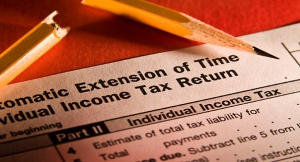What does filing an “extension” do?
• An extension is a form filed with the IRS to request additional time
to file your federal tax return. The extension period is six months,
which extends the due date for submitting your final returns from April
15 to Oct. 15*. In some states, filing an extension with the IRS will
automatically extend the time to complete a state income tax return.
• Filing an extension grants you additional time to submit your complete
time to submit your complete
and accurate return, but you still need to estimate whether you will
owe any taxes and pay that estimated balance by April 18.
• Extending your return allows you and your CPA more time to prepare
your tax return to ensure filing of an accurate tax return. In many
cases, you may still be waiting for additional information (e.g.,
Schedule K-1, corrected 1099s, etc.) to complete your return.



